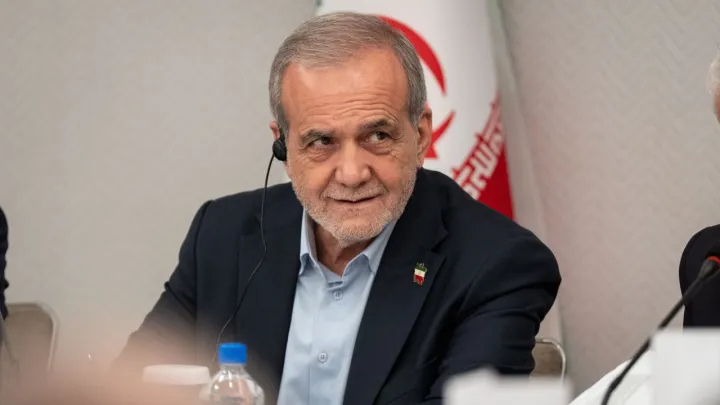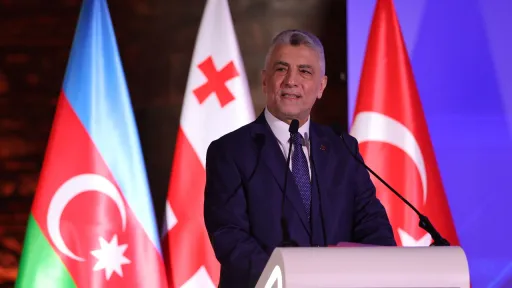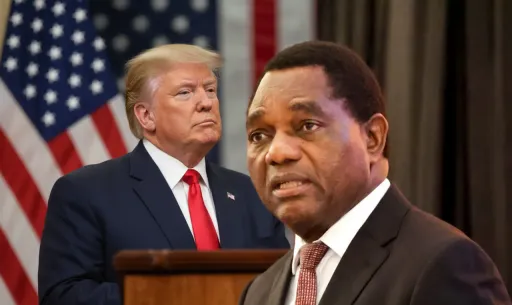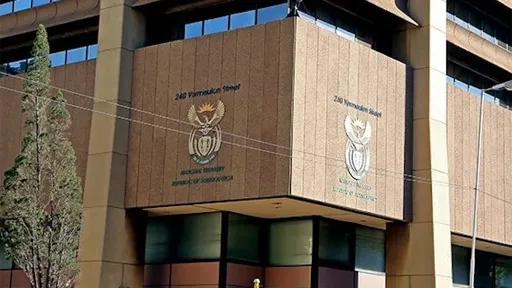By Coletta Wanjohi
TRT Afrika, Nairobi
The three-day Africa Climate Summit that opened in Kenya's capital, Nairobi, on September 4 is being seen as a landmark event not just because it is the continent's first such initiative, but also for what is happening concurrently in terms of mass awakening.
As many as 500 civil society organisations from Africa have signed up for what they call "The African People's Declaration 2023", participating in a slew of activities running parallel to the summit.
Victims of fossil fuel from parts of the continent are being represented at this veritable people's assembly. Abolition of fossil fuels is among the primary demands that proponents of the charter say makes this summit different from previous initiatives.
“Fossil fuel must remain in the ground. We demand an immediate halt to expansion of fossil-fuel extraction and rapid, equitable phasing out of existing production of oil, gas and coal everywhere," states the people's assembly.
Fossil fuels are non-renewable energy sources like crude oil, coal and related products, natural gas, petroleum, and derived gas.
Driving the change
"We are hoping our voices will be heard by the heads of states. It's not just them – we want our voices to be heard by the people of Africa," says Tasneem Essop, executive director of Climate Action Network (CAN) International.
Muhammed Lamin Saidykhan, head of building movement power at CAN International, believes the time has come to drive the change rather than wait for it to happen.
“Science is very clear. It says the main cause of climate change is fossil fuel investment; so, if we don’t stop it, that means we are putting our lives in danger; we are putting our chances of survival in danger," he tells TRT Afrika.
Green strategy Greenpeace Foundation, the global environmental organisation that is spearheading a clean-energy movement, is running a campaign to get the Africa Climate Summit to decide that there would be no more fossil fuel investment in the continent.
Africa's potentials
It is challenging the African Union (AU), one of the main organisers of the summit, to adopt a strong stance against fossil fuels.
"AU could either show the courage to ensure Africa leads the world in a transition to 100% renewable, secure and affordable energy, or it could let big oil and extractive industries continue to plunge the planet into disaster after disaster," says Moses Wemanya, a renewable energy advisor who is part of the campaign.
"Oil and gas have fuelled a climate crisis. We need a solution to it, and we cannot find one by expanding the same oil and gas industry in Africa. We need to find a way of investing in new energy systems that will serve the needs of Africans."
Lamin of CAN International highlights the irony of the continent and its people paying the price both ways. "Africa hosts about 40% of the minerals that the world needs to decarbonise. Yet, over 600 million Africans are going into energy poverty,'' he says.
The Democratic Republic of Congo targets developing at least one million hectares of irrigated land by 2030.
This, the country hopes, will contribute to a decrease in deforestation, the transition to sedentary agriculture, and the reduction of greenhouse gas emissions.
Congo is reportedly working on also promoting solar, wind and hydroelectric energy use.
In Tunisia, the UN Climate Change (UNCC) says that the energy sector is experiencing an upward trend in demand.
The hurdles
Mozambique is reportedly looking to supply solar and wind-powered electricity to 5,000 households in remote locations.
In Ethiopia, the government has an ambitious plan of taking to full capacity its 600MW power dam, which can generate enough hydroelectric power to cater to the needs of more than 65% of its population.
At the Africa Climate Summit, some citizens have voiced scepticism about how effective deliberation on eradication of fossil fuels will be if it is influenced by fossil fuel companies.
"We have met here in Nairobi, but we really feel the fossil fuel companies are the ones influencing a lot of discussions and decisions during this summit," says Stephen Kariuki, executive director of Kenya Network Forum, which focuses on ecosystem restoration around arid and semi-arid areas in Mt. Kenya area.
Act faster
“Africans are not discussing the real mitigation and adaptation issues that are affecting them. We are actually having intruders in the form of fossil fuel investors supporting or sponsoring some of these meetings. This is worrying because some of our leaders are not actually taking responsibility for what they are speaking out for," says Kariuki.
Some delegates say the leaders know what to do, but aren't acting as fast as they should against fossil fuels.
"The political will required for this isn't there. The West isn't supporting, and the global north isn't doing so either in terms of helping Africa provide clean energy to its people. What is happening instead is that they are fuelling the use of fossil fuels by pushing more investment in some of these projects," explains Lamin.
Fight back
CAN, which encompasses civil society organisations, is planning a global campaign against fossil fuels from September 15 to 17.
"The fossil fuel industry has launched a war on humanity and climate, and to fight back we have started this global campaign that will continue till the end of the year. This is also to advance the agenda of the people of Africa," says Lamin.
According to Tasneem, the "most important message" that the people need to digest is that "the most suffering because of climate change will happen in Africa".
It is also a message whose ominous ring will resonate long after the debates at the Africa Climate Summit die down, and the dust settles on the commitments made by leaders.























